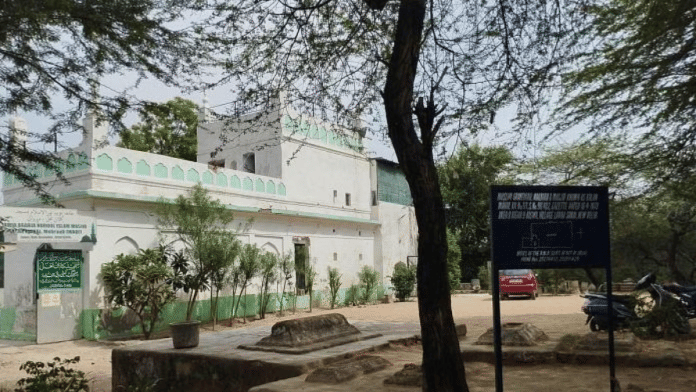New Delhi: The Supreme Court Thursday refrained from staying some provisions of the controversial Waqf (Amendment) Act, 2025, after the Modi government assured not making new appointments to the central Waqf Council or state boards and promised not to de-notify properties, including waqf-by-use either declared by registration or a gazette notification, for the time being.
Appearing before a three-judges bench led by Chief Justice of India Sanjiv Khanna and comprising justices Sanjay Kumar and K.V. Vishwanathan, solicitor general Tushar Mehta told the bench that it would not be appropriate to “consider staying (a parliamentary legislation) indirectly or directly, based upon some prima facie or tentative reading of some of the sections.”
Mehta was referring to the bench’s proposal to stay the operation of three key provisions of the Act, which, it prima facie opined, could potentially lead to serious consequences. The bench had, however, not issued any stay order when the solicitor general sought more time to convince the bench not to put on hold the implementation of the said sections.
The SC had Wednesday hinted at the possibility of staying some of the provisions of the amended law. These related to inclusion of non-muslims in the waqf boards and council, possible denotification of an unregistered waqf-by-user property in case it is on a government land and if a dispute is raised and not treating those private trusts that have been declared as waqf through a court order as waqf in terms of the new law.
Mehta got up to address the bench even before it could resume the hearing. The government, he said, will have to take the judges through “the history of (waqf) legislation, the 1923 act, which is a hundred years back, followed by 1935, followed by 1954, followed by amendment in 1984.”
“There was a committee recommendation followed by 1995 and the amendment. And in the meanwhile, we as a government and as a parliament, we are answerable to people. We received lakhs and lakhs of representations which resulted in some of the provisions being made,” he said, urging the bench not to be in a hurry to stay the legislation.
“….for example, villages and villages are taken as waqf. Private properties of individuals are taken as waqf and I have orders which say when they approach the High Court, (they are told) these are disputed questions of fact. It is a considered piece of legislation.”
The solicitor general informed the judges that the matter before it is such that the court would require assistance, even for issuing the interim order “because it would affect either a large number of innocent peoples, their right to land, their right to property….”
When Justice Kumar said that the court was not deciding the matter, Mehta replied: “but your lordships are taking a very serious and harsh step in staying partly, indirectly, or in whichever way one may call it, some statutory provisions without complete assistance.”
He then requested for a week’s time to allow him to file his submissions on why interim relief should not be granted to the petitioners, saying he would like to place “material documents and statutes” before the court in support of the changes made to the law.
“This is not a matter which Your Lordships would also like to consider on prima facie reading,” he reiterated.
CJI Khanna intervened and said that the court is concerned about drastic changes that could potentially happen with the implementation of the law. He, however, ruled out a complete stay of the Act, considering there are some “good provisions”.
“At the same time, we don’t want the situation to change…we don’t want whatever situation today is prevailing, to change so drastically that it affects,” the CJI added, pointing out that the court was not inclined to put on hold the section that allows someone who has been a practicing muslim for at least five years to create a waqf.
“One of the thumb rules the courts apply, they don’t stay the legislation at the preliminary stage. At the same time, there’s another thumb rule…that when the matter is pending consideration before the court, the situation as it is prevailing today should continue so as not to upset the rights of the parties.”
This prompted Mehta to record his assurance about protecting waqf-by-user properties that are registered and not going ahead with the appointments to the waqf boards and central council.
After a brief hearing, the court ordered: “…..during the course of hearing, solicitor general Tushar Mehta states that the respondents would like to put in a short response which will be filed in seven days.”
“He further states that till the next date of hearing, he assures the court that no appointments will be made to the Council and the Board under section 9 and 14 of the amended provisions. It is also stated that till the next date of hearing, the waqf including waqf by use, whether declared by way of notification or by way of registration shall not be denotified neither will their character be changed. We take the statement on record,” the bench said.
It gave seven days to the respondents to file their responses and counter affidavits. “Response thereto be filed within five days thereafter.”
The next hearing will take place 5 May.
(Edited by Tony Rai)
Also Read: What SC said on waqf-by-user, non-Muslims in council on Day 1 of hearing on Waqf Act amendments






